George H.W. Bush Has Died at Age 94
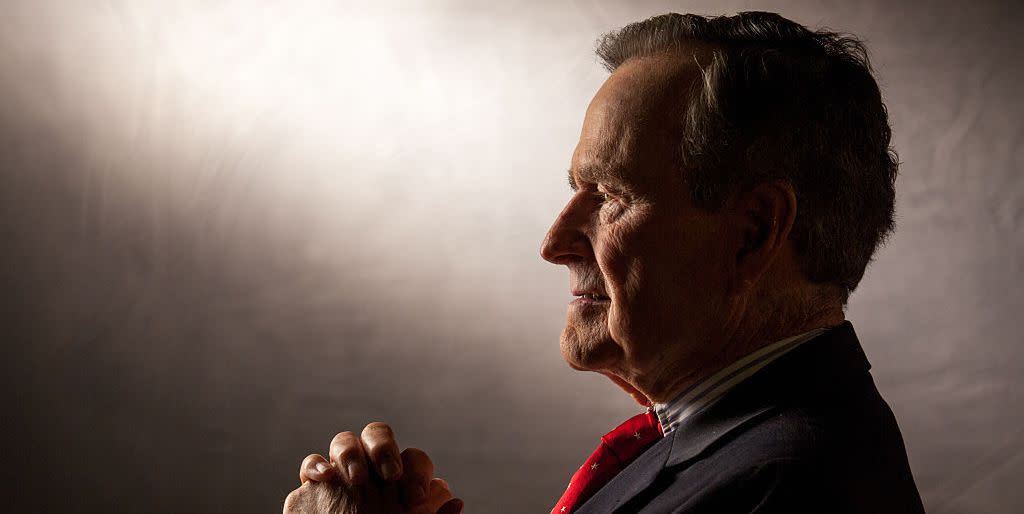
George H.W. Bush has died today at the age of 94, his son and former president George W. Bush confirmed.
Statement by the Office of George H. W. Bush on the passing of the 41st President of the United States of America this evening at 10:10pm CT at the age of 94. pic.twitter.com/XUPgha2aUW
- Jim McGrath (@jgm41) December 1, 2018
Although the cause hasn't been confirmed, Bush had been battling a form of Parkinson's disease for years, and recently was in and out of the hospital over the last year due to a number of health complications.
George W. released an official statement on behalf of the Bush family, noting that his father was the a man "of the highest character and the best dad a son or daughter could ask for."
Statement by the 43rd President of the United States, George W. Bush, on the passing of his father this evening at the age 94. pic.twitter.com/oTiDq1cE7h
- Jim McGrath (@jgm41) December 1, 2018
Funeral arrangements have yet to be announced.
As the 41st President of the United States, Bush led the country through conflicts in the Persian Gulf and Panama, signed the North American Free Trade Agreement, and at one point, scored a record-high approval rating of 89% during a term spanning from 1989 to 1993. He also held the offices of Vice President, Director of the Central Intelligence Agency, envoy to China, Chair of the Republican National Committee, ambassador to the United Nations, and U.S. Congressman during a lengthy political career.
The noted family man remained married to his wife Barbara for 73 years until her passing on April 17, 2018. Together they had six children, 17 grandchildren, and seven great-grandchildren. The patriarch of a political dynasty watched his son George W. Bush go on to become the 43rd President.
Born to Prescott Bush and Dorothy Walker Bush, on June 12, 1924, in Milton, Massachusetts, George Herbert Walker Bush spent most of his childhood in the well-to-do suburb of Greenwich, Connecticut.
The Phillips Academy student met his future bride at a country club's Christmas dance when he was just 17. "Since I didn't waltz, we sat the dance out. And several more after that, talking and getting to know each other," George said later. "It was a storybook meeting."
On his 18th birthday, George enlisted in the U.S. Navy, becoming the youngest naval aviator at the time. The bomber pilot flew in one of the largest air battles of World War II, the Battle of the Philippine Sea. When he was shot down on September 2, 1944, Barbara didn't hear from him for more than a month.
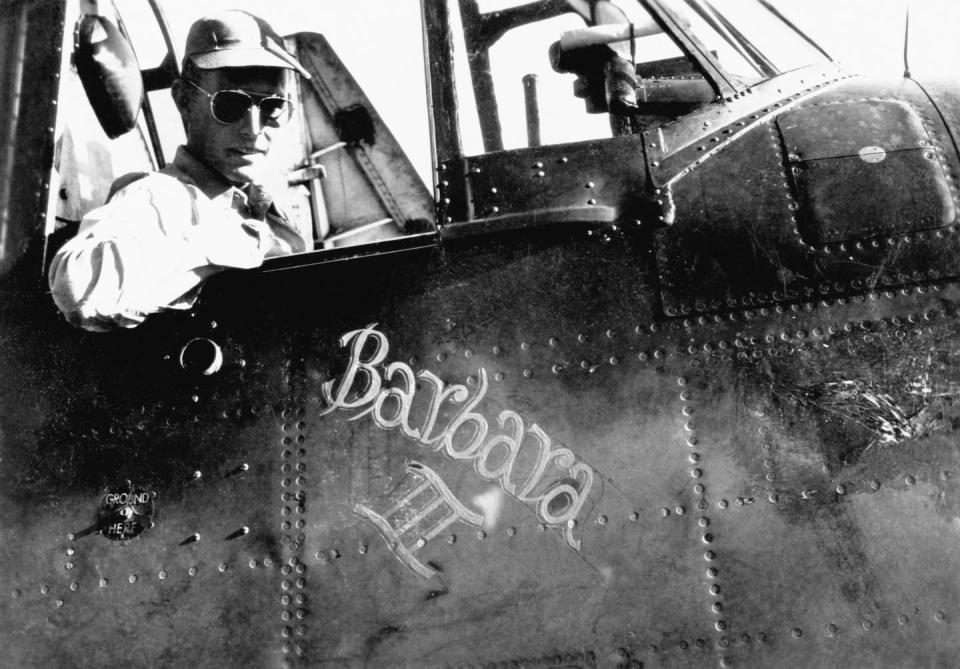
The couple wed on January 6, 1945, in Rye, New York, during his deployment leave. Months later, the war would end and George entered Yale University. They had their first child George Walker in 1946, followed by Pauline Robinson ("Robin") in 1949, and Jeb in 1953. George moved the young family to Texas where he entered the oil industry, but hardship arrived when doctors diagnosed Robin with leukemia.
"Neither of us had ever heard of it," Barbara remembered in her 1994 memoir. "George asked [the doctor] what the next step was; how did we cure her?" Despite their best efforts, their precious daughter passed not long afterwards at the age of 3.
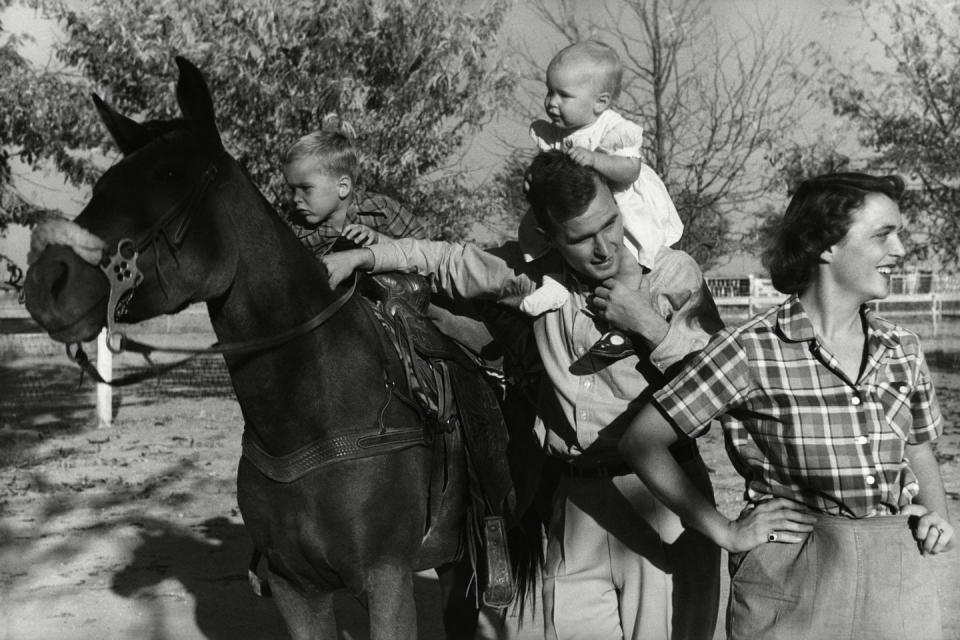
He rarely talked about losing Robin, George W. Bush revealed in his book 41: A Portrait of My Father, but Bush Sr. once wrote Barbara a letter about how lonely he felt. "We need some some blond hair to offset those crew cuts. We need a dollhouse to stand firm against our forts and rackets and thousand baseball cards," he stated. "We need a girl."
After welcoming two more sons, Neil and Marvin, to the family, George had his prayer answered in 1959. "When he first saw her in the hospital, he pressed his face to the nursery glass and sobbed," George W. revealed.
Not long afterwards, Bush set his sights on the political arena. He ran for U.S. Senate in his first major campaign, losing to the incumbent but also setting the groundwork for his successful election to the House of Representatives in 1966.
Later appointments to Ambassador of the United Nations, Chairman of the Republican National Committee, envoy to China, and Director of Central Intelligence solidified Bush as a formidable political figure. He entered the 1980 presidential election, losing to Ronald Reagan in the primary but later becoming his running mate.
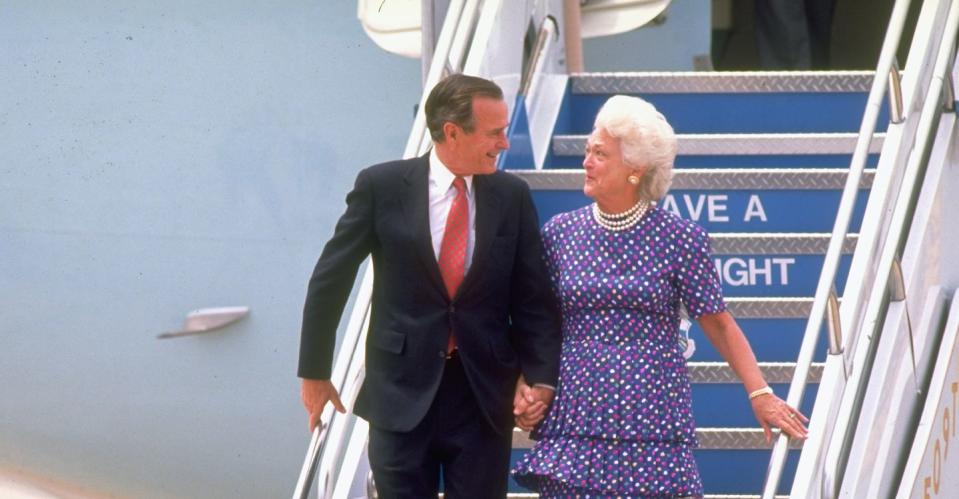
When Reagan was shot in an assassination attempt in 1981, Bush's aides advised him to fly directly to the White House by helicopter, but the VP rejected the proposal. "Only the President lands on the South Lawn," he said. Regan recovered, and the men remained good friends, having weekly private lunches throughout his time in the Oval Office.
The Reagan-Bush ticket's landslide victory in 1984 prompted Bush to plan for the presidency yet again, this time with the desired outcome. With the fall of the Berlin Wall just months away, his term marked a new era, where a "kinder and gentler nation" would become a "force for good."
"I come before you and assume the Presidency at a moment rich with promise," he said in his inaugural speech. "We live in a peaceful, prosperous time, but we can make it better. For a new breeze is blowing, and a world refreshed by freedom seems reborn."
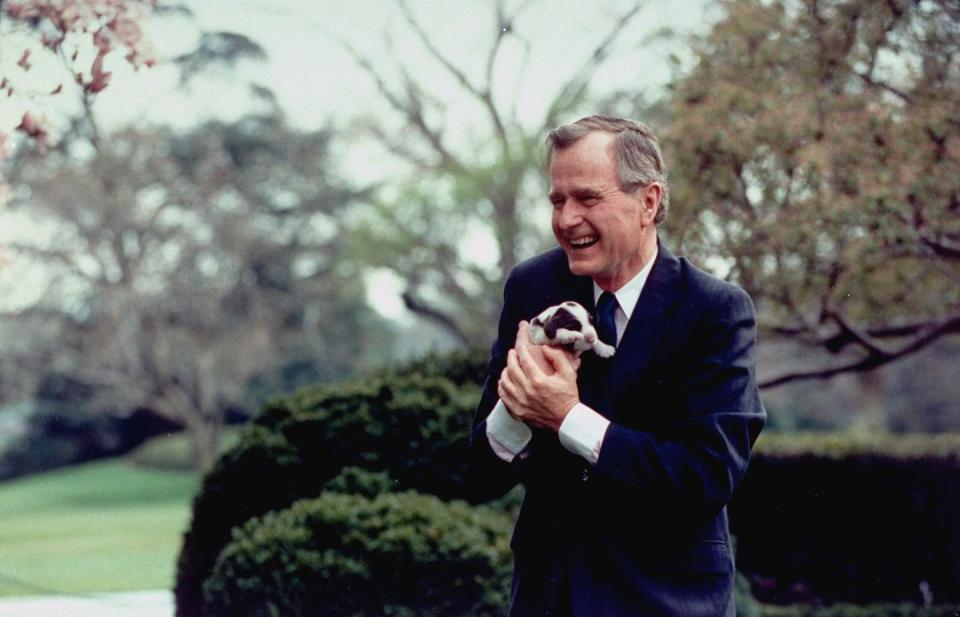
For all its reborn freedom, the world faced some major changes over the next four years. The invasion of Panama, dissolution of the Soviet Union, Gulf War, and NAFTA punctuated Bush's policy agenda, but it was the economy at home that ultimately dashed his chances at reelection. Ceding the Oval Office to Bill Clinton, Bush entered retirement and returned to Houston in 1993.
George and Barbara spent their later years alternating between Texas and their family compound in Kennebunkport, Maine. In 2000, he became the father of a president when George W. Bush took the office.
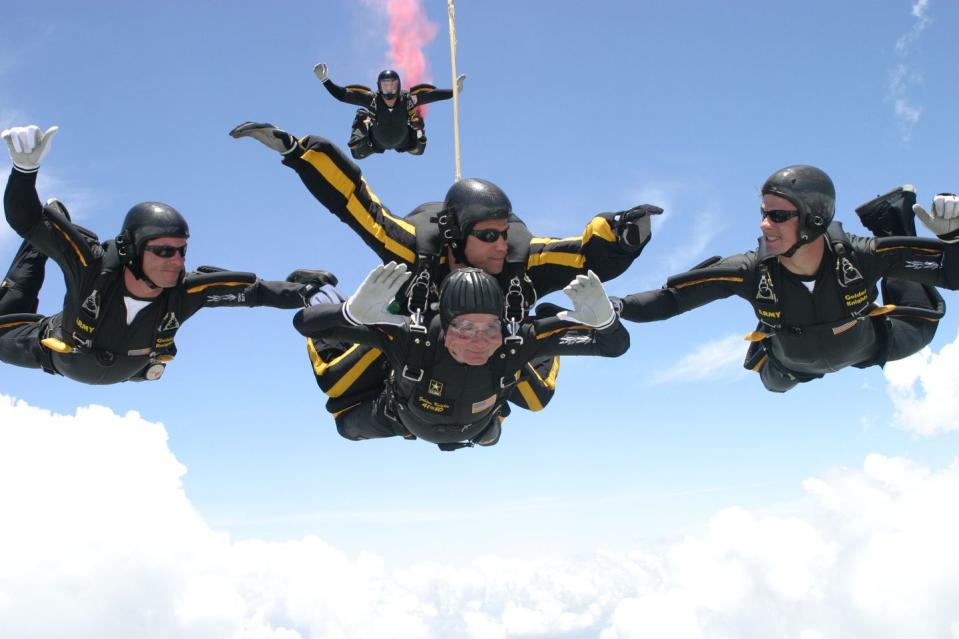
By 2012, George started using a motorized scooter or wheelchair for his vascular parkinsonism, a rare syndrome that mimics Parkinson's Disease. Pneumonia and a neck injury also sidelined the president over the years, but he continued with philanthropic work. He teamed up with Clinton to raise funds after natural disasters like the Indian Ocean tsunami in 2004 and Hurricane Katrina in 2015. After Hurricanes Harvey and Irma, they partnered with the other three living former presidents, Jimmy Carter, George W. Bush, and Barack Obama, in a relief effort for victims.
On April 17, 2018, George lost his wife of 73 years. "He held her hand all day today and was at her side when she left this good earth,” his spokeswoman Jean Becker shared in a statement, calling him "broken-hearted" but also "stoic and strong."
“We have faith she is heaven, and we know life will go on - as she would have it," George himself later shared. "So cross the Bushes off your worry list." His homage to Barbara's renowned fortitude also echoed a similar sentiment shared by his son in 41: A Portrait of My Father.
"Late in his life, as he contemplated his own mortality, Dad asked his minister whether he would meet Robin and his mother in heaven," George W. Bush wrote in 2014. "He asked whether Robin would still look like a child, or whether she would have 'grown up' over the sixty years since her death. That's part of the great mystery. But I think Dad know in his heart that he will see his daughter again."
('You Might Also Like',)
